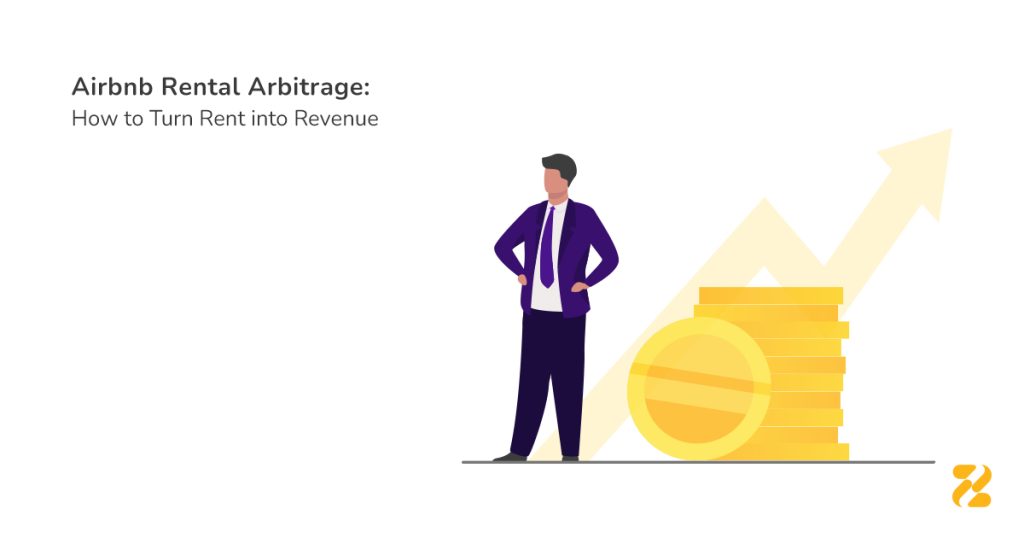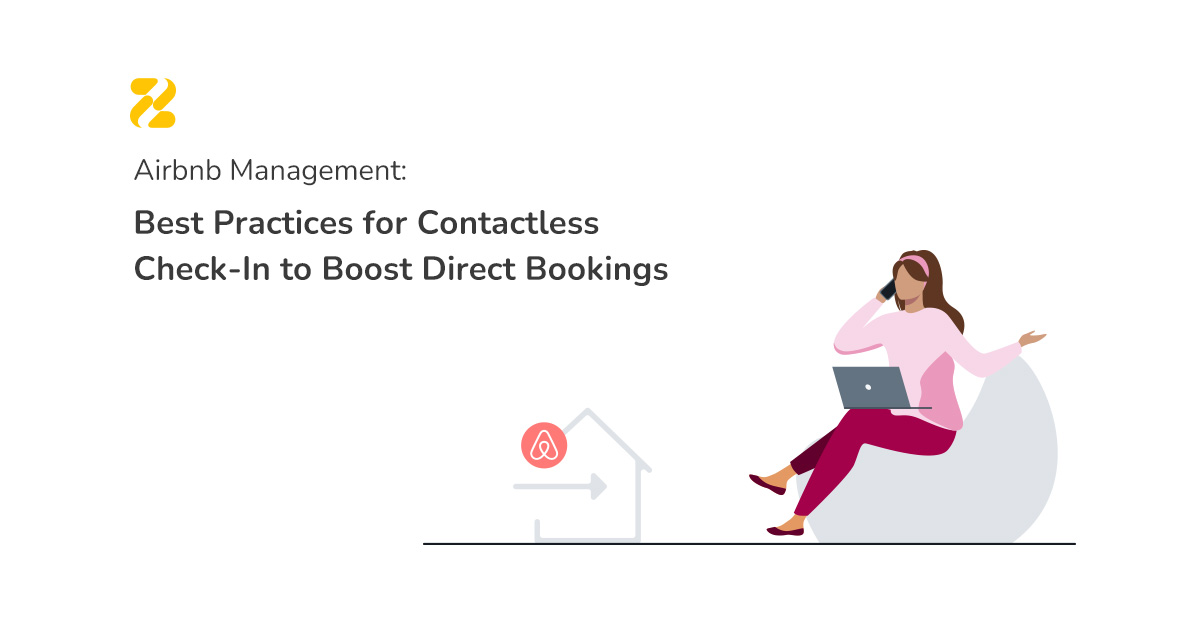Airbnb rental arbitrage is rapidly emerging as a popular and profitable strategy for entrepreneurs in the vacation rental industry. By renting properties on a long-term basis and subletting them on short-term rental platforms like Airbnb, individuals can generate substantial income.
In this blog post, we will explore the ins and outs of Airbnb arbitrage, including how to get started, the potential benefits, and the challenges you might face along the way.
Table of Contents
What Is Airbnb Arbitrage?
Airbnb rental arbitrage is a business model where individuals or companies rent properties on a long-term basis and then sublet them on short-term rental platforms like Airbnb and Vrbo. This allows the arbitrageur to profit from the difference between the long-term lease cost and the short-term rental income.

Here’s how it works:
- Renting: The arbitrageur secures a long-term lease on a property.
- Subletting: The property is then listed on short-term rental platforms.
- Profit Margin: The goal is to earn more from the short-term rentals than the cost of the long-term lease and associated expenses.
This method can generate significant cash flow without the need for property ownership. However, it requires market research and effective management, often facilitated by vacation rental software, to handle bookings, maintenance, and guest services.
While the concept may seem straightforward, successful execution depends on factors like location, rental demand, and regulatory considerations.
Pros of Airbnb Rental Arbitrage
1. Lower Investment: Unlike purchasing a property, Airbnb arbitrage requires minimal upfront investment. Typically, you only need to cover the first month’s rent, security deposit, and furnishing costs.
2. Lower Financial Risk: As you don’t own the property, major repairs and maintenance costs fall on the landlord. If the property doesn’t perform well, you can terminate the lease without the burden of a mortgage.
3. Scalability: The Airbnb arbitrage business model allows for rapid scaling. With the help of a property management system like Zeevou, managing multiple properties across various locations becomes feasible and efficient.
4. Simplified Bookkeeping: Airbnb rental arbitrage hosts mainly deal with paying rent and operational costs. This is simpler compared to the multiple expenses property owners manage, such as taxes, mortgages, and HOA (Homeowners Association) fees. This can result in lower overall costs compared to owning a rental property.

Cons of Airbnb Rental Arbitrage
1. Obligatory Rent Payments: Regardless of your booking success, you must pay rent every month. Late payments can lead to charges or even legal action.
2. Potential Property Damage: If guests damage the property, the responsibility for repairs typically falls on you, the leaseholder. Although Airbnb’s AirCover and rental insurance might help, they may not cover all costs.
3. Complex Leasehold Agreements: Detailed agreements with landlords are necessary to protect all parties involved. Drafting these documents can be time-consuming and may require legal assistance.
4. Regulatory and Permission Challenges: Compliance with local laws, HOA bylaws, and obtaining permissions from neighbours or municipalities is essential. Many areas have strict regulations on short-term rentals, which can limit your Airbnb arbitrage business.
5. Income Volatility: The short-term rental market is subject to fluctuations due to seasonal demand, increased competition, or unexpected events like a global pandemic. This can lead to unstable income.
6. Limited Property Control: Making significant changes or renovations to the property often requires the landlord’s approval. This limits your ability to enhance the property’s appeal independently.
How to Start an Airbnb Arbitrage Business
Starting an Airbnb rental arbitrage can be a lucrative venture, but it requires careful planning and execution.

1. Research and Financial Planning
- Understand Local Laws: Ensure that short-term rentals are legal in your area. Check local regulations, HOA rules, and lease agreements.
- Identify Demand: Look for areas with high demand for short-term rentals. Research popular tourist destinations, business districts, and university areas.
- Competitive Analysis: Study other Airbnb listings in your target area. Assess their pricing, occupancy rates, and guest reviews.
- Estimate Starting Costs: Calculate initial expenses, including insurance, legal fees (permits, licences), furnishings, and appliances. Subtract fixed costs (rent, utilities, Airbnb fees) from expected gross earnings to determine potential profit margins.
2. Building a Network
- Facebook Groups: Engage with local real estate investor groups to network and learn from experienced investors.
- Networking Events: Attend real estate networking events in your city to find potential landlords and partners for your Airbnb arbitrage business.
- Reach Out: Contact prospective landlords to propose subletting their properties for short-term rentals. Highlight the benefits for landlords, such as steady rental income and property upkeep.
3. Setting Up Your Business
- Form an LLC: Consider setting up a limited liability company (LLC) to protect your personal assets and provide a professional business structure.
- Build Credibility: A professional website can enhance your credibility and attract landlords. Include details about your services, testimonials, and contact information.
- Invest in Quality: Furnish the property with comfortable furniture, quality linens, and essential amenities to enhance guest experience.
4. Listing and Marketing
- Multiple Platforms: List your property on multiple vacation rental platforms like Airbnb, Vrbo, and Booking.com to maximise visibility.
- Optimise Listings: Use high-quality photos, detailed descriptions, and competitive pricing. Highlight unique features and local attractions.
- Adjust Prices: Use dynamic pricing tools to adjust rental rates based on demand, seasonality, and local events to maximise occupancy and revenue.

5. Managing Operations
- Property Management System (PMS): Use a PMS to automate guest communication, synchronise calendars, coordinate cleanings, and manage bookings.
- Smart Amenities: Implement smart home technologies like digital welcome books and smart locks to enhance guest experience.
- Excellent Communication: Respond promptly to guest enquiries and issues to maintain high ratings and positive reviews.
6. Continuous Improvement
- Track Metrics: Regularly review occupancy rates, guest feedback, and financial performance to identify areas for improvement.
- Adjust Strategies: Adapt your approach based on market trends, guest preferences, and operational insights to optimise your Airbnb arbitrage business.
Airbnb rental arbitrage offers a promising business model with its low initial investment, reduced financial risk, and scalability. However, it also comes with challenges, such as obligatory rent payments, potential property damage, and regulatory hurdles. Success in this venture requires thorough research, effective management, and compliance with local regulations.
Image by pch.vector on Freepik.





